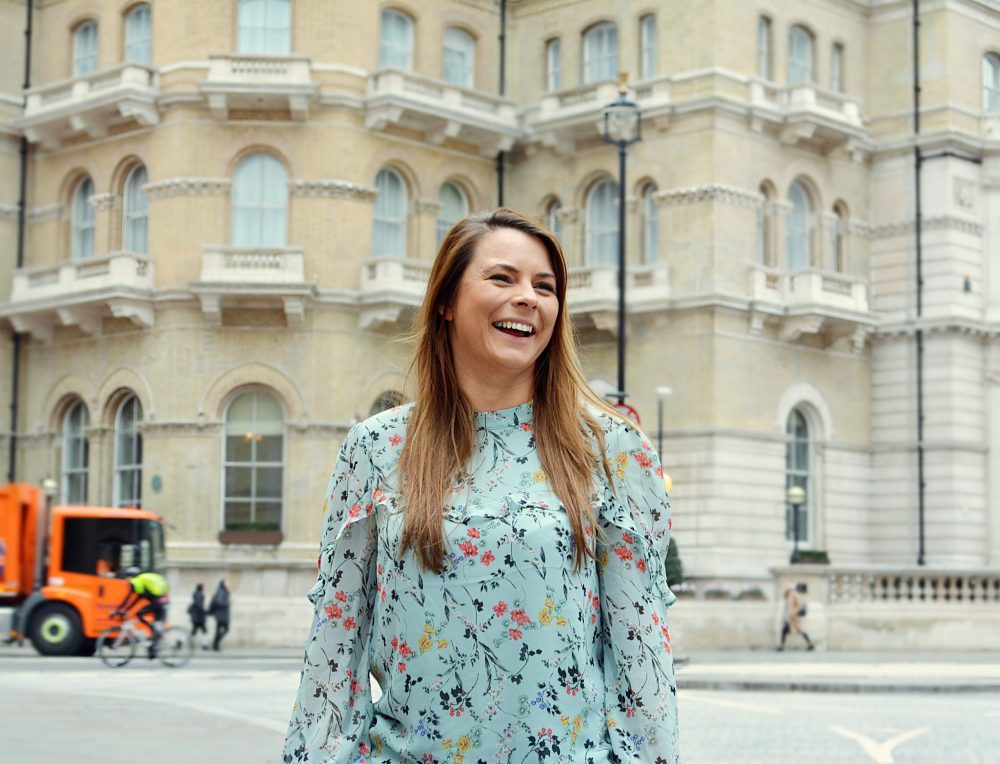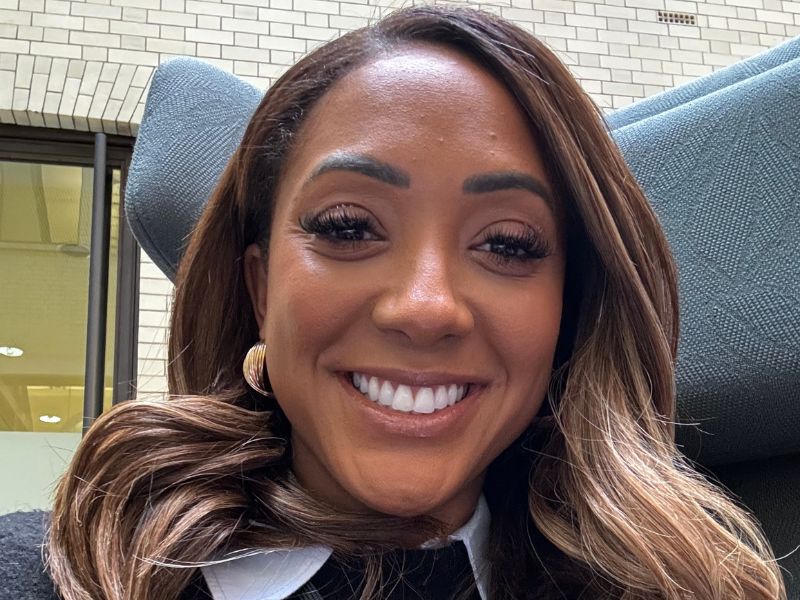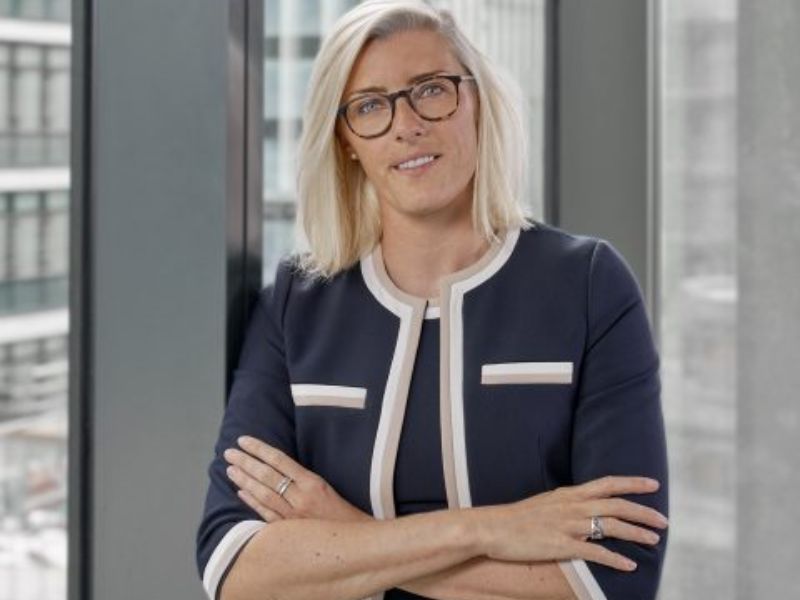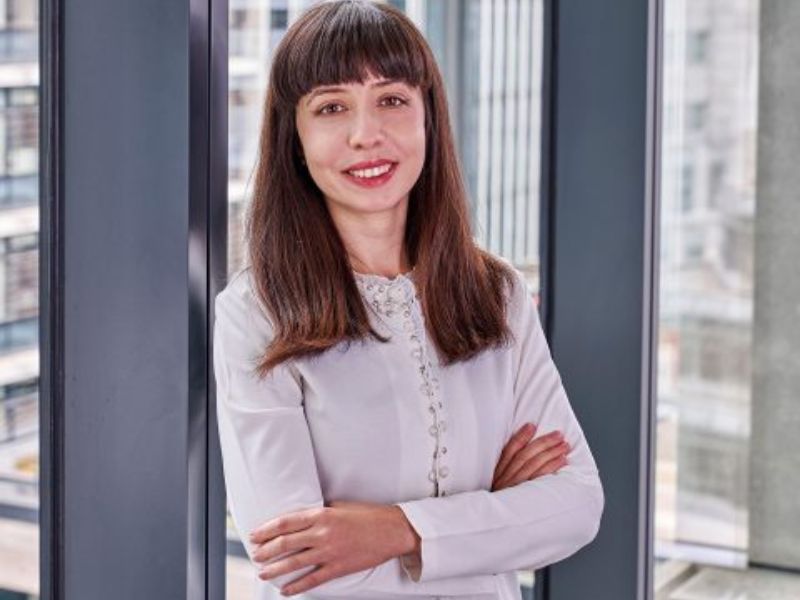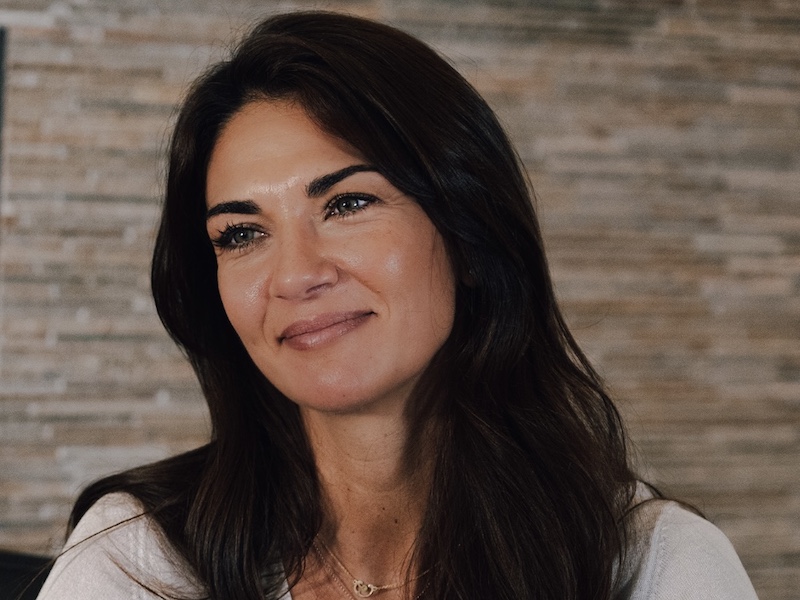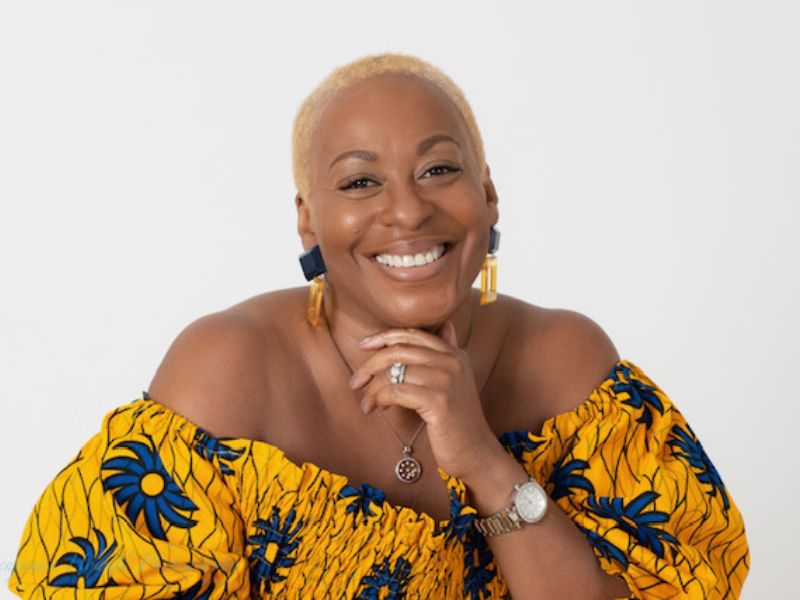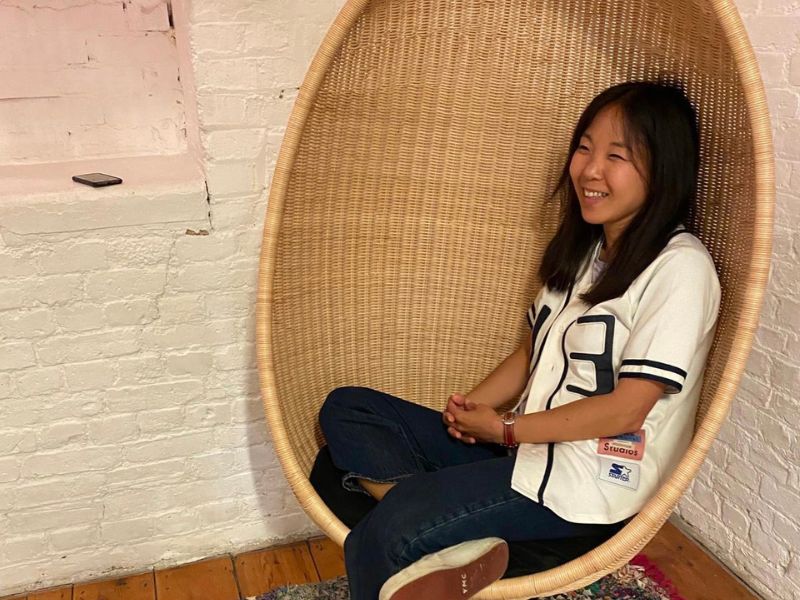Liz Johnson is a Paralympic gold medallist turned disability campaigner and businesswoman.
Liz Johnson is the founder of two organisations which aim to close the disability employment gap. The Ability People is the first disability-led employment consultancy, which works with companies to change their outlook on disability and transform their operations to be authentically inclusive. And recently, Liz has launched Podium, the first jobs marketplace for disabled freelancers. The new platform empowers disabled people to access meaningful remote work which meets their needs, and enables employers to access diverse talent across any sector and from any part of the world.
Tell us a bit about yourself, background and your current role
Up until a few years ago I was competing in Paralympic Games, European and World Championships. After winning many medals, including gold across all three, surgery for an injury finally slowed me down and I decided it was time to retire from swimming.
Now I run The Ability People, a disability-led employment consultancy, which means I spend a lot of time working with big companies to help change the way that they approach diversity and inclusion. The aim is to make everything from their job applications to their offices authentically accessible to disabled people.
Also, we’ve just launched a new offering – Podium. Podium is an online jobs platform for disabled freelancers. Current health and unemployment risks disproportionately affect disabled people and mean that they need remote work more than ever before. Connecting them to those opportunities through Podium is my current focus.
Did you ever sit down and plan your career?
Yes but it didn’t have me ending up here, ha! When I started swimming aged three, it was because my mum knew it would help to strengthen my muscles since I was born with cerebral palsy and it evolved into an outlet that enabled me to satisfy my competitive nature.
Then, The Ability People and Podium were born out of necessity rather than a career plan. When I retired from swimming I still had my hand in sport as a commentator, but learning about the disability employment gap made me want to do more.
Disabled people are twice as likely to be unemployed. Whilst I’ve been lucky enough to reach the top of my game it infuriates me that disabled people don’t have the same equity of experience and achieve success in other sectors and I felt compelled to do something to help.
It wasn’t until I met my co-founder, Steve, that I knew what that something was! Steve had been working in recruitment for years. He wanted to give employers access to more diverse talent and I wanted to give disabled people access to more employment opportunities – it all fell into place.
Have you faced any challenges along the way?
There will always be challenges. When I was competing it could have been coming back from an injury or a race I didn’t win. As a disabled person it could be something as simple as pulling on a pair of jeans. But those things are unavoidable and you learn to adapt.
The real challenges are those which impair disabled people needlessly everyday. Things like a train station without step free access, a supermarket with poorly placed priority car parking spaces, or an employer who doesn’t accommodate flexi time. And my personal challenge is to help bring attention to these microaggressions and unpick the biases in society which are responsible for them.
What has been your biggest achievement to date?
I was hugely humbled to take the Paralympic Oath for London 2012. But Beijing 2008 was particularly significant. My mum is a huge inspiration to me and sadly passed away just prior. That, coupled with a shoulder injury that left me without the use of my strongest arm in the build up to the Games made coming away with the gold a poignant and significant achievement.
Outside of sport, being included on BBC’s 100 women list was an honour. But I’m so passionate about the work we do through TAP and Podium – being a part of a team which is helping open up the way for more disabled people to take the stage is what really counts for me.
What one thing do you believe has been a major factor in you achieving success?
You have to be resilient in order to succeed in business or sport, and growing up with a disability has without question shaped my character. From the day I learnt to walk, I’ve had to take the long route to get from A to B, constantly adapting en route.
But in doing so I’ve also learnt how to problem solve and why there’s little point in comparing yourself to others… These qualities are the hallmark of so many disabled people I know – partly why I find it astonishing that employers rule out disabled candidates before they’ve even seen what we have to offer!
It is regularly talked about that women are put off by sports and exercise – how can we change this?
I think it’s less that women are put off by sport and exercise, and more that women are told by society that they’re not as capable as men of being strong and fast or that they should “look” and participate in a certain way. This is the same problem that disabled people face; they’re impaired more by society’s perception of them – which assumes that they are less capable than their able-bodied counterparts – than they are by their disability itself.
In the same way that we need to work with employers to change the cultures, operations and processes which put up barriers to disabled people finding meaningful work, we need to work with schools, training facilities and sports clubs to make sport more accessible to women.
How do you feel about mentoring? Have you mentored anyone or are you someone’s mentee?
I’ve had mentors throughout my personal and professional life, and I’ve benefited from all of them. My mum has always been my biggest supporter and, of course, I wouldn’t have been able to stand on the podiums I have if it wasn’t for my swimming coach and the team around me.
I absolutely love being a mentor to others and supporting them to realise their potential. In many ways, TAP and Podium are an extension of this. It’s about making a difference in a new arena; helping employers who are committed to becoming authentically inclusive and empowering disabled people to fulfil their own career goals.
If you could change one thing to accelerate the pace of change for Gender Equality, what would it be?
I think we must first ensure that when we’re talking about gender equality, we’re talking about equality for all women.
Whether we’re marching in streets, casting our votes or posting on social media, we need to encompass women across all intersections of their identities; including race, ethnicity, sexuality, class and of course disability amongst many other factors.
Even amongst ourselves as women, we are far from equal. It’s only when we start lifting up all women, and working together to do this, that we’ll be able to achieve true gender equality. And hopefully achieve it a lot faster!
If you could give one piece of advice to your younger self what would it be?
Don’t sacrifice happiness and believe in yourself. They’re lessons I learnt from my mum when I was younger. She taught me that life is for living and that anything is possible, so enjoy what you do and never think you aren’t good enough. But, if you truly want to achieve something, you are the only person that can make that happen. It starts with you and then you find the most appropriate people to support you.
What is your next challenge and what are you hoping to achieve in the future?
The biggest challenge is getting organisations and authorities to view inclusion as a requirement and not a choice. Since disabled people were already disadvantaged by the disability employment gap, the pandemic has hit particularly hard.
On the other hand, prior to the pandemic most employers put up a fight against flexible working practices. But since the wider population now relies on working from home as much as disabled people, businesses have managed to remodel their entire operations in record timing. This means that there is no longer any excuse for employers failing to put in place lasting structures to accommodate the needs of disabled people.
It also means I have real hope that Podium will continue to grow and become the thriving freelance marketplace which we envision. We know how much talent exists across the disabled community. So as long disabled people are less likely to be employed on account of being disabled alone, my challenge and mission will be to change this.

